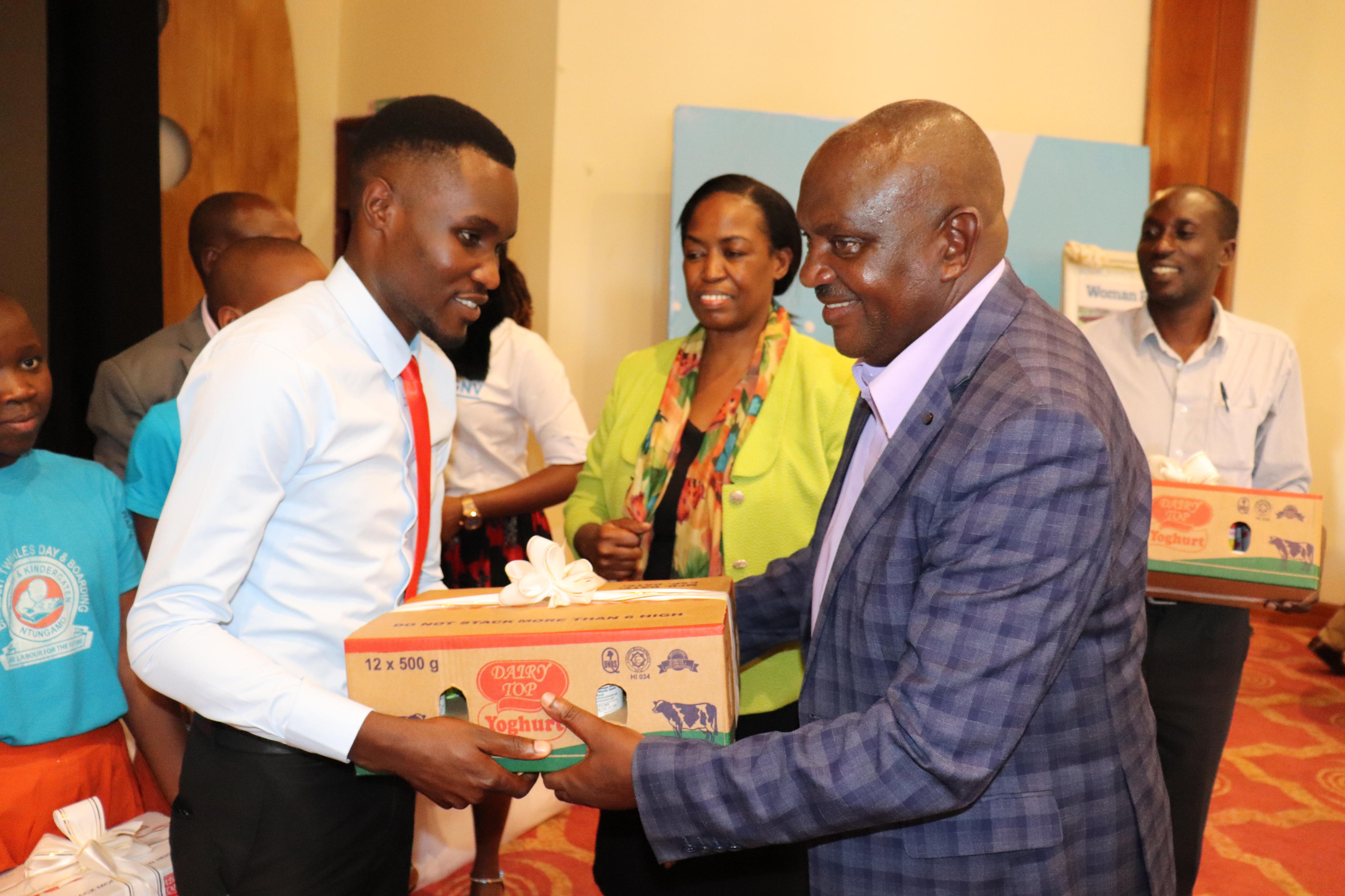Prime
School feeding programme boosts dairy production in western Uganda

Emmy Katera Turyabagyenyi the RDC of Mbarara gives a student a box of yoghurt locally produced by Dairy Top, one of the cooperatives that have benefitted from the synergy of the SNV School Milk Programme in western Uganda. Photo/George Katongole.
What you need to know:
- The SNV School Milk Programme is driving transformation in western Uganda. Extending its impact to nearly a million students, the programme goes beyond alleviating hunger in schoolchildren. It plays a crucial role in elevating dairy production in 130 cooperatives.
In western Uganda, a school feeding programme is making significant strides in not only addressing hunger among school children but also boosting dairy production among local communities.
Millions of children worldwide face the challenge of attending school on an empty stomach, affecting their ability to concentrate and learn.
Some children, unfortunately, don’t attend school at all due to family responsibilities. School meal programmes have emerged as a solution, improving education, health, and nutrition for children while also strengthening local economies.
The Ministry of Education and Sports in Uganda has been implementing various school feeding programs, including the Karamoja School Feeding Programme, SNV School Milk Programme, Kakira School Feeding Programme, and the Parent-led School Feeding programme. By 2021, these programmes were benefiting 427,876 children in primary and secondary schools out of the 20 million enrolled students.
One standout initiative is the SNV School Milk Programme, funded through The Inclusive Dairy Enterprise (TIDE), a five-year project that commenced in 2016 with support from the Embassy of the Kingdom of the Netherlands. Operating in partnership with the Ministry of Education and Sports, Ministry of Health, and the Dairy Development Authority, the program has reached 2,482 primary schools, impacting nearly a million students in the western Uganda districts of Bushenyi, Isingiro, Kiruhura, Mbarara, Ntungamo and Sheema.
TIDE’s impact extends beyond schools, reaching over 20,000 farmers in 130 cooperatives. Through enhanced knowledge and cooperative support, these farmers have experienced increased productivity. At a recent close-out event at the Igongo Hotel in Mbarara, the TIDE programme received praise for its role in directly influencing dairy farmers, contributing to an estimated daily income of Shs126 million within the dairy sector.
Phomolo Maphosa, SNV’s Country Director in Uganda, highlighted the far-reaching positive effects of the School Milk Programme on Uganda’s future generation, emphasising its role in creating a stable market for dairy farmers.
“The program has not only provided nutritious food for school-going children but has also created a stable market for dairy farmers,” Maphosa says.
Stable market
This stability is evident in the schools providing local dairy farmers with a reliable outlet for their products, leading to a stable income, increased investments, and higher productivity. Schools consume an average of 125,549 litres of milk daily, contributing to an estimated annual sales value of Shs33.6.
Beyond economic benefits, the initiative has provided grants to participating schools, enabling the installation of energy-saving stoves, water purification systems, handwashing facilities, and the construction of 30 school kitchens. This has improved overall school infrastructure and hygiene.
Moses Ahimbisibwe, the Dairy Development Authority (DDA) regional manager in Mbarara, acknowledges the programme’s impact in helping achieve regulatory goals in the milk sector. The government’s comprehensive strategy focuses on increasing productivity, promoting market access, enhancing value addition, and strengthening dairy cooperatives.
“Cooperatives play a vital role in the dairy sector by acting as intermediaries between farmers and the market. The TIDE project, has been instrumental in supporting these efforts,” Ahimbisibwe says.
Adding value
For instance, the Abesigana Dairy Farmers Cooperative Society received support to construct a mini processing plant, enabling them to process yoghurt since 2020.
The cooperative currently processes 1,010 litres of yoghurt daily under the brand name Abba Yoghurt, with plans to scale up to more than 2,800 litres. This effort aims to diversify cooperatives’ business portfolios beyond selling raw milk, contributing to the development of the domestic milk market.




